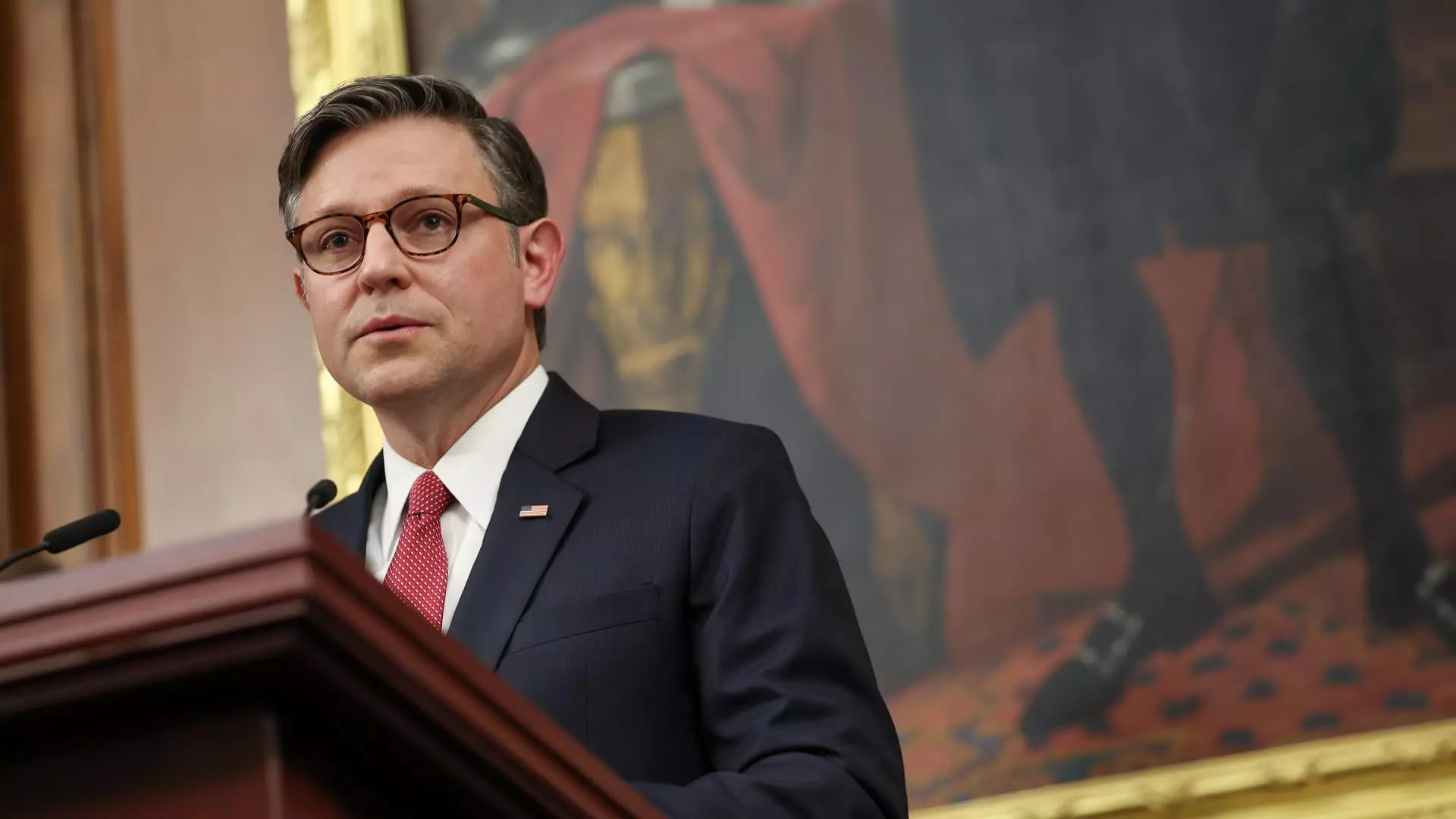The ongoing debate surrounding the War Powers Act has unveiled an unsettling trend in the fabric of American governance. House Speaker Mike Johnson’s vehement assertion that the War Powers Act is unconstitutional echoes a broader ideological battle, centering on the delicate balance of power between the executive and legislative branches. If we allow this perspective to gain traction, we’re flirting dangerously with the erosion of foundational democratic principles. It isn’t merely a question of legality; it’s about the essence of accountability in governance.
Johnson’s claim that President Trump possessed the unilateral authority to order airstrikes against Iranian nuclear targets is emblematic of a troubling shift towards an imperial presidency. We must ask: what are the limits of executive power in a democracy? The Constitution does bestow upon Congress the authority to declare war—a power it has seldom exercised since World War II. When the legislative body remains passive in such critical global matters, it not only invites an imperial presidency but also diminishes its role as a representative of the people’s will.
The War Powers Resolution: A Necessary Restraint
The War Powers Resolution of 1973 was enacted as a safeguard against undemocratic military engagement, ensuring that the president cannot act without some degree of oversight from Congress. In this light, dismissing the Act as unconstitutional undermines the very checks and balances that our forefathers painstakingly etched into the Constitution. By labeling the War Powers Resolution as a legal overreach, Johnson and his allies risk normalizing a precedent that allows the commander-in-chief to engage in military actions without the critical scrutiny of elected representatives.
This cavalier attitude towards the War Powers Resolution should alarm every American concerned about democratic integrity. If this mechanism for congressional oversight falters, and the executive branch unchecked, we may find ourselves embroiled in conflicts that bear little relation to our national interests. It’s worth noting that the framers intended for war declarations to be a collective decision made by the people’s representatives—not a unilateral decision made in the Oval Office.
The Bipartisan Response and Its Implications
As Representative Thomas Massie, alongside Democratic representative Ro Khanna, attempts to draw a line in the sand by introducing a War Powers resolution to block unauthorized military hostilities towards Iran, the issue transcends partisan politics. More than a dozen House Democrats have signed onto this resolution, signaling a rare moment of bipartisanship that emphasizes the necessity for legislative oversight.
However, the mixed signals from Massie suggest that even this crucial measure may be compromised by the evolving landscape of U.S.-Iran relations. The delicate balance of foreign diplomacy can often lead to concessions that bypass constitutional mechanisms. The question remains: how far are we willing to let presidential prerogative dictate our engagement in international conflicts?
Johnson’s dismissal of the resolution as a “moot point” in light of Trump’s recent ceasefire announces a disconcerting reality—resolutions that should reinforce constitutional authority risk being sidelined by political expediency. This trend is alarming; it points to a willingness among some lawmakers to bend to the whims of presidential narratives rather than adhere to a principled commitment to oversight.
The Role of Public Sentiment and Accountability
Public sentiment surrounding military action often ebbs and flows with the tides of national security concerns. When the public is gripped by fears of terrorism or international instability, it’s easy for the executive to rally support for military action. Yet, this is precisely where accountability comes into play; citizens must remain vigilant against the encroachment of unchecked power.
The alarming rhetoric employed by President Trump in disparaging Massie demonstrates the troubling dynamics between the executive and legislative branches. Calling a sitting member of Congress a “LOSER” reflects a broader environment where dissent is being demonized rather than debated, a trend which diminishes the essence of deliberative governance. It is imperative for lawmakers to resist this culture of autocratic governance by upholding the principles of democratic discourse, fostering an environment where differing opinions can coexist and be respected.
In this age of increasing partisanship, the War Powers Act should serve as a focal point for cultivating bipartisan dialogue about congressional authority and military engagement. The stakes could not be higher; the survival of our democratic norms, and the very fabric of our republic, depends on the willingness of both parties to collaborate in matters of war and peace.


Leave a Reply